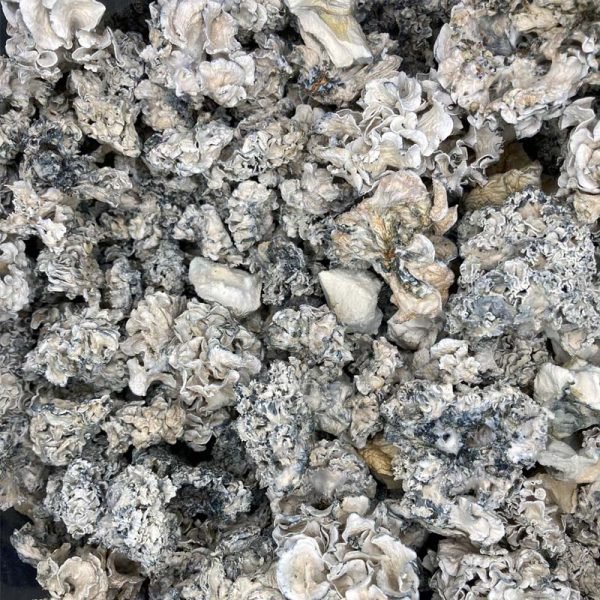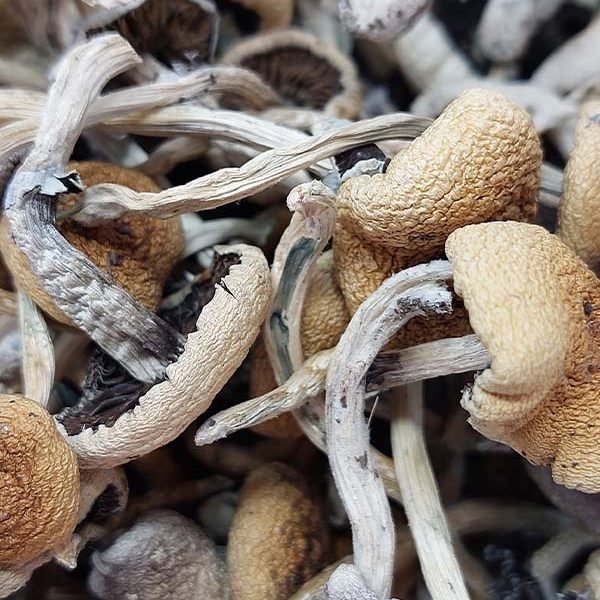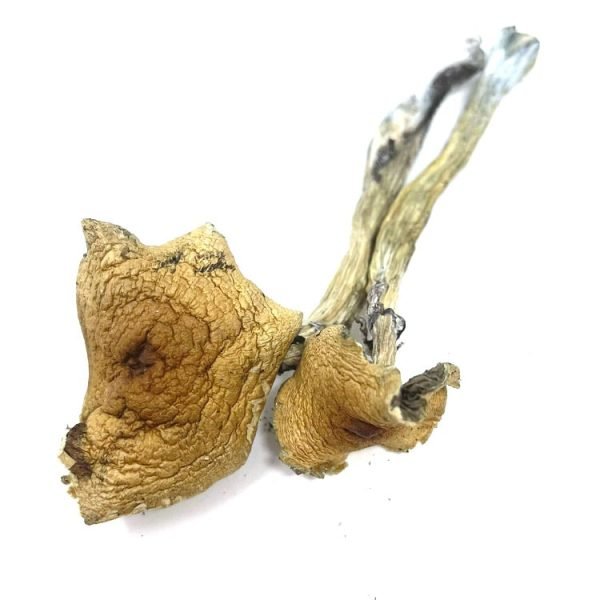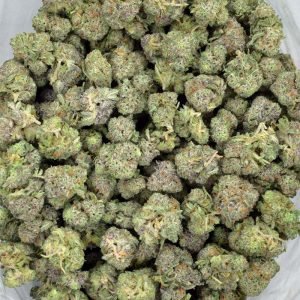Costa Rican Magic Mushrooms
$25.00 – $125.00
Magic Mushroom Dosage Guide
Low or micro dose: 1 gram – mild euphoria and enhanced senses
Medium dose: 1.75 grams – perceptual distortions, light euphoria
High dose: 3.5 grams – heavy perceptual distortions
Ultra high dose: 5 grams – completely disconnected from reality
Everyone’s tolerance is different, so don’t rely on this dosage guide. It’s safer to start with a smaller dose and work your way up.
Description
Introduction to Costa Rican Magic Mushrooms
Magic mushrooms, known for their psychoactive properties, have been used for centuries in various cultures for both spiritual and medicinal purposes. These fungi contain compounds like psilocybin and psilocin, which are responsible for their mind-altering effects. Costa Rica, with its rich biodiversity, is home to several unique species of magic mushrooms that have fascinated researchers and enthusiasts alike.
Historically, indigenous communities in Costa Rica and across the Mesoamerican region have utilized magic mushrooms in their rituals and healing practices. These fungi were revered as sacred tools that facilitated communication with the spiritual realm, aiding in ceremonies that sought guidance, healing, and enlightenment. The traditional use of magic mushrooms underscores their significance in cultural heritage and spiritual practices.
In contemporary settings, magic mushrooms in Costa Rica have gained popularity for both recreational and therapeutic purposes. Modern users often seek these mushrooms for their potential to induce profound changes in perception, cognition, and emotional well-being. Recent scientific studies have also highlighted the potential benefits of psilocybin in treating various mental health conditions, including depression, anxiety, and PTSD.
Costa Rica’s unique climate and diverse ecosystems provide an ideal environment for a variety of magic mushroom species. Among these, Psilocybe cubensis and Psilocybe caerulescens are particularly notable. Psilocybe cubensis, easily identifiable by its distinctive cap and stem, is one of the most widely recognized species due to its widespread distribution and potent effects. Psilocybe caerulescens, often referred to as the “blue-staining” mushroom, is another species that thrives in Costa Rican habitats, known for its striking appearance and powerful psychoactive properties.
Understanding the historical context and the unique species native to Costa Rica adds depth to our appreciation of these extraordinary fungi. As we delve deeper into the wonders of Costa Rican magic mushrooms, it becomes evident that these natural treasures hold a significant place in both ancient traditions and modern explorations.
The Science Behind Magic Mushrooms
Magic mushrooms, particularly those found in the rich biodiversity of Costa Rica, have garnered significant attention for their psychoactive properties. Central to these effects is the compound psilocybin, a naturally occurring psychedelic substance. When ingested, psilocybin is metabolized into psilocin, which interacts with serotonin receptors in the brain, specifically the 5-HT2A receptor. This interaction is responsible for the altered perceptions, heightened sensory experiences, and profound cognitive shifts often reported by users.
The potential therapeutic benefits of psilocybin have been an area of burgeoning research. Studies have indicated that psilocybin may be effective in treating a range of mental health conditions, including depression, anxiety, and PTSD. Its ability to modulate brain activity and foster new neural connections is thought to underlie these therapeutic effects. For instance, psilocybin has been shown to decrease activity in the default mode network (DMN), a brain network associated with self-referential thoughts and rumination, which are often heightened in depressive states.
Recent years have seen a resurgence of scientific interest in psilocybin, largely driven by promising early clinical trials and a growing recognition of the limitations of traditional psychiatric medications. This renaissance is marked by rigorous studies exploring not just the safety and efficacy of psilocybin but also the mechanisms by which it exerts its effects. Research institutions worldwide are now investigating its potential uses, from aiding in end-of-life psychological distress to facilitating breakthroughs in psychotherapy for substance use disorders.
In summary, the science behind magic mushrooms is both complex and fascinating. Psilocybin, the key psychoactive compound, has a profound impact on the brain’s structure and function, offering a glimpse into its potential as a transformative therapeutic tool. The ongoing research continues to unveil the myriad ways in which these natural substances can contribute to mental health and well-being, heralding a new era in psychedelic science.
Legal Status of Magic Mushrooms in Costa Rica
The legal landscape regarding magic mushrooms in Costa Rica is complex and nuanced. Currently, psilocybin, the psychoactive compound found in magic mushrooms, is classified as a controlled substance under Costa Rican law. This categorization aligns it with other substances deemed to have a high potential for abuse, therefore making the sale, possession, and use of magic mushrooms illegal in the country.
However, enforcement of these regulations appears to be inconsistent, particularly in comparison to other controlled substances. Anecdotal reports suggest that in certain rural areas or within some indigenous communities, the use of magic mushrooms is tolerated or overlooked by authorities. This irregular enforcement may stem from long-standing cultural practices where these mushrooms have been used in traditional ceremonies and healing rituals, reflecting a more lenient and culturally sensitive governmental attitude toward their use.
When comparing Costa Rica’s legal stance on magic mushrooms to other countries in the region, it becomes evident that the approach varies widely. For instance, in Mexico, the use of magic mushrooms is legal for traditional and ceremonial purposes, especially among indigenous populations. On the other hand, countries like Guatemala and Honduras maintain a stricter prohibition, with severe penalties for possession and distribution. In this regional context, Costa Rica’s legal framework is relatively moderate but still leans towards prohibition.
Despite the legal restrictions, there is a growing discourse around the potential therapeutic benefits of psilocybin, which has prompted discussions among policymakers and health professionals in Costa Rica. Some advocate for re-evaluating the legal status of magic mushrooms, arguing that regulated use could offer significant mental health benefits. As global attitudes towards psychedelics continue to evolve, it remains to be seen whether Costa Rica will adjust its legal framework in the future.
“`html
Traditional Uses and Cultural Significance
Magic mushrooms, known scientifically as psilocybin mushrooms, hold profound cultural and spiritual significance among the indigenous groups of Costa Rica. For centuries, these mushrooms have been an integral part of their traditional practices, serving as both a spiritual tool and a medicinal aid. The Bribri and Cabécar tribes, among others, have long revered these fungi for their ability to facilitate deep spiritual journeys and connection with the natural world.
In spiritual practices, magic mushrooms are often consumed during sacred ceremonies aimed at achieving a higher state of consciousness. Shamans, who are considered spiritual leaders and healers within these communities, utilize the visions induced by psilocybin to gain insights, communicate with ancestral spirits, and receive guidance. These ceremonies, typically held in sacred sites like caves or forests, are accompanied by chanting, drumming, and other rituals designed to create a conducive environment for spiritual exploration.
Beyond their spiritual applications, magic mushrooms are also valued for their healing properties. Traditional healers use them to treat a variety of ailments, both physical and psychological. It is believed that the mushrooms can cleanse the body of toxins, relieve pain, and provide mental clarity. The holistic approach of indigenous medicine emphasizes balance and harmony, viewing the mind, body, and spirit as interconnected entities that must be healed together.
The cultural narratives surrounding magic mushrooms are rich with stories and legends. One popular legend tells of a mythical figure who discovered the mushrooms’ powers and shared them with humanity, thereby bridging the gap between the earthly and the divine. Such stories underscore the deep-rooted reverence for these natural substances and their perceived role in the cosmic order.
In essence, magic mushrooms are far more than just a natural phenomenon in Costa Rica; they are a vital element of the cultural and spiritual fabric of its indigenous peoples. Their traditional uses reflect a profound understanding of nature’s gifts and a holistic approach to health and spirituality.
Modern Trends and Practices
In recent years, Costa Rica has emerged as a prominent destination for those seeking unique experiences with magic mushrooms. This phenomenon, often referred to as ‘psychedelic tourism,’ has seen a significant rise as individuals from around the world flock to this Central American paradise. These visitors are drawn by the promise of transformative experiences, facilitated by the natural landscape and the availability of these psychedelic fungi.
Psychedelic tourism in Costa Rica is not merely about recreational escapades; it often intertwines with deeper, more meaningful pursuits. Many tourists are motivated by the potential therapeutic benefits of magic mushrooms. These benefits include the alleviation of mental health conditions such as depression, anxiety, and PTSD. Numerous retreats and wellness centers have sprung up across the country, offering guided sessions that promise to harness the healing properties of these mushrooms in a controlled and supportive environment.
This modern trend has also seen a rise in the integration of magic mushrooms into wellness and mindfulness practices. Yoga retreats, meditation workshops, and holistic healing sessions often incorporate these substances to enhance spiritual and personal growth. Such practices are frequently conducted by experienced facilitators who ensure safe and enriching experiences for participants.
The recreational use of magic mushrooms, however, remains a significant aspect of their appeal. Enthusiasts often partake in these mushrooms to explore altered states of consciousness, enhance creativity, and deepen their connection with nature. Costa Rica’s diverse ecosystems, from lush rainforests to serene beaches, provide the perfect backdrop for such explorations.
As the popularity of magic mushrooms continues to grow, so too does the conversation about their potential benefits and risks. This ongoing dialogue is essential for understanding the place of these fungi in modern society, ensuring that their use is both safe and meaningful for all who seek their wonder.
Potential Benefits and Risks
Magic mushrooms, particularly those found in Costa Rica, have garnered significant attention for their potential benefits and associated risks. These fungi contain psychoactive compounds such as psilocybin, which have been studied for their effects on mental health. On the positive side, several research studies suggest that psilocybin can offer profound mental health benefits. These benefits include alleviation of depression, reduction in anxiety, and mitigation of post-traumatic stress disorder (PTSD) symptoms. Psilocybin’s ability to foster personal insights and enhance emotional clarity is also well-documented, potentially leading to improved self-awareness and personal growth.
However, the use of magic mushrooms is not without risks. One of the primary concerns is the potential for psychological distress. Individuals may experience intense and sometimes overwhelming emotions or hallucinations that can lead to anxiety, paranoia, or even panic attacks. The risk of a “bad trip” is significant and can have lasting psychological effects. Another critical risk is that of legal consequences. The legal status of psilocybin mushrooms varies widely across different jurisdictions, and possession, use, or distribution can lead to severe legal penalties in many regions, including specific areas in Costa Rica.
Additionally, the use of magic mushrooms can exacerbate pre-existing mental health conditions. Individuals with a history of schizophrenia or other severe psychiatric disorders may find their symptoms worsened. The unpredictability of the psychedelic experience means that users must approach with caution and awareness. Therefore, while the potential benefits of Costa Rican magic mushrooms for mental health and personal insight are promising, it is crucial to weigh these against the potential psychological and legal risks. Proper education, legal awareness, and perhaps medical supervision are essential for those considering their use.
Sustainable and Ethical Harvesting
In the enchanting landscapes of Costa Rica, magic mushrooms thrive in unique ecosystems that are both delicate and diverse. The growing interest in these fungi requires a conscious approach to their harvesting to ensure that they remain a sustainable resource for future generations. Sustainable and ethical harvesting practices are crucial in maintaining the ecological balance and preserving the natural habitats where these mushrooms flourish.
One of the primary principles of sustainable harvesting is to avoid over-harvesting. This means collecting mushrooms in moderation, taking only what is needed and leaving enough behind to allow for natural regeneration. Harvesters should be mindful of the mushroom’s lifecycle, ensuring that they do not pick immature specimens, which are essential for the continuation of the species.
Another critical aspect is to respect the natural habitat. Magic mushrooms are often found in symbiotic relationships with specific plant species, soil compositions, and microclimates. Disrupting these delicate environments can have long-lasting adverse effects. Harvesters should avoid disturbing the surrounding vegetation and soil, which play a crucial role in the mushrooms’ growth and ecological function.
Additionally, responsible harvesters should adhere to local regulations and guidelines. Many regions in Costa Rica have specific rules governing the collection of wild mushrooms to protect both the species and the environment. Compliance with these regulations ensures that harvesting practices contribute to the conservation efforts and sustainability of the local ecosystems.
Education and awareness also play a significant role in sustainable harvesting. By understanding the ecological significance of magic mushrooms and the potential impacts of irresponsible harvesting, individuals can make informed decisions that support conservation efforts. Community involvement and cooperation can further enhance these practices, fostering a collective responsibility towards preserving Costa Rica’s natural wonders.
Ultimately, sustainable and ethical harvesting is about striking a balance between utilization and conservation. By adopting mindful practices, harvesters can enjoy the benefits of Costa Rican magic mushrooms while ensuring that these extraordinary fungi continue to thrive in their natural habitats for years to come.
Conclusion and Future Outlook
In conclusion, Costa Rican magic mushrooms hold a significant place in the cultural fabric of the nation, intertwined deeply with traditions and spiritual practices. As we have explored, these fungi offer not only a historical and cultural value but also a myriad of potential benefits for mental health and personal growth. The unique biodiversity of Costa Rica provides an ideal environment for a variety of psilocybin mushrooms, making it a focal point for both enthusiasts and researchers alike.
The ongoing research into the therapeutic potentials of magic mushrooms is promising. Scientific studies are increasingly highlighting the efficacy of psilocybin in treating conditions such as depression, anxiety, and PTSD. This growing body of evidence could potentially lead to a shift in legal perspectives, transforming the current regulatory landscape. Costa Rica, with its rich natural resources and progressive attitude towards alternative medicine, could very well be at the forefront of this shift.
Cultural attitudes towards magic mushrooms are also evolving. While traditionally these fungi were revered for their spiritual significance, modern usage is expanding to encompass recreational and therapeutic contexts. This shift reflects a broader global trend towards the decriminalization and acceptance of psychedelics. In Costa Rica, such changes could foster a more open and informed dialogue about the safe and beneficial use of magic mushrooms.
Looking ahead, the future of magic mushrooms in Costa Rica appears bright. With increasing interest from both the scientific community and cultural advocates, there is potential for significant developments in understanding and utilizing these remarkable fungi. As the dialogue continues to evolve, it remains crucial to approach this topic with respect and responsibility, ensuring that both the cultural heritage and the scientific advancements surrounding magic mushrooms are honored and integrated thoughtfully.
Additional information
| Weight | 3.5Grams, 7Grams, 14Grams, 28Grams |
|---|







Reviews
There are no reviews yet.